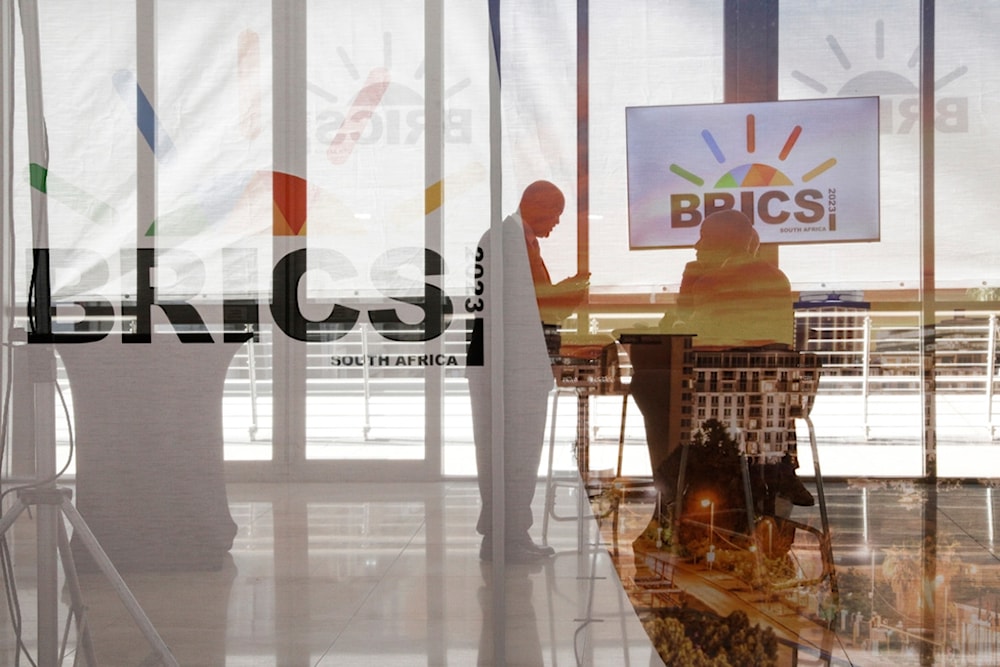BRICS countries refrain from signing declaration at Swiss summit
Putin recently expressed readiness to start peace talks with Ukraine at any moment, but on one condition: a full withdrawal of Ukrainian troops from Russian territories.
-

Delegates interact during the 2023 BRICS Summit in Johannesburg, South Africa, Wednesday, Aug. 23, 2023. (Gianluigi Guercia/Pool via AP)
The BRICS countries, along with several other states present at the summit on Ukraine hosted in Switzerland, did not endorse a collective declaration on the outcomes of Sunday's talks, as indicated by the list of signatories.
Earlier today, Ukrainian Foreign Minister Dmytro Kuleba confirmed that the declaration's text had been completed and that Kiev's viewpoints had been considered.
Out of the 91 countries in attendance, 79 signed the document. However, Armenia, Bahrain, Brazil, the Holy See, India, Indonesia, Libya, Mexico, Saudi Arabia, South Africa, Thailand, and the UAE chose not to sign it.
Read more: BRICS ministers back mediation for Ukraine conflict resolution
The conflict in Ukraine stems from violent clashes in 2014 that led to numerous casualties and prompted then-President Yanukovych to flee Ukraine, which led to a coup d'etat and the establishment of a Western-backed interim government.
Switzerland is currently hosting a high-level conference on Ukraine at the Buergenstock resort near Lucerne from June 15-16. 91 countries and delegations from organizations are confirmed to be participating in the summit.
According to Kremlin spokesperson Dmitry Peskov, discussions on peace in Ukraine are not part of the agenda at the summit, and Putin's ceasefire proposals are not being considered.
Putin recently expressed readiness to start peace talks with Ukraine at any moment, but on one condition: a full withdrawal of Ukrainian troops from Russian territories.
Swiss, Saudi leaders call for Russian involvement in peace process
On Saturday, both Swiss President Viola Amherd and Saudi Arabia's foreign minister during the summit voiced the critical role of Russian participation in achieving a sustainable peace process for Ukraine.
"The peace process without Russia is inconceivable," Amherd said while stressing the necessity for both parties to engage in dialogue beyond armed conflicts.
Echoing similar views, the Saudi foreign minister stated, "It is essential to emphasize that any credible process will need Russia's participation."
European Commission President Ursula von der Leyen rejected the idea of freezing the Ukraine conflict, advocating instead for comprehensive support towards achieving a just and sustainable peace that upholds Ukraine's sovereignty and territorial integrity.
"Freezing the conflict today … is not an answer ... Instead, we need to support a comprehensive, just and sustainable peace for Ukraine, one that restores Ukraine's sovereignty and its territorial integrity," von der Leyen said.

 3 Min Read
3 Min Read









